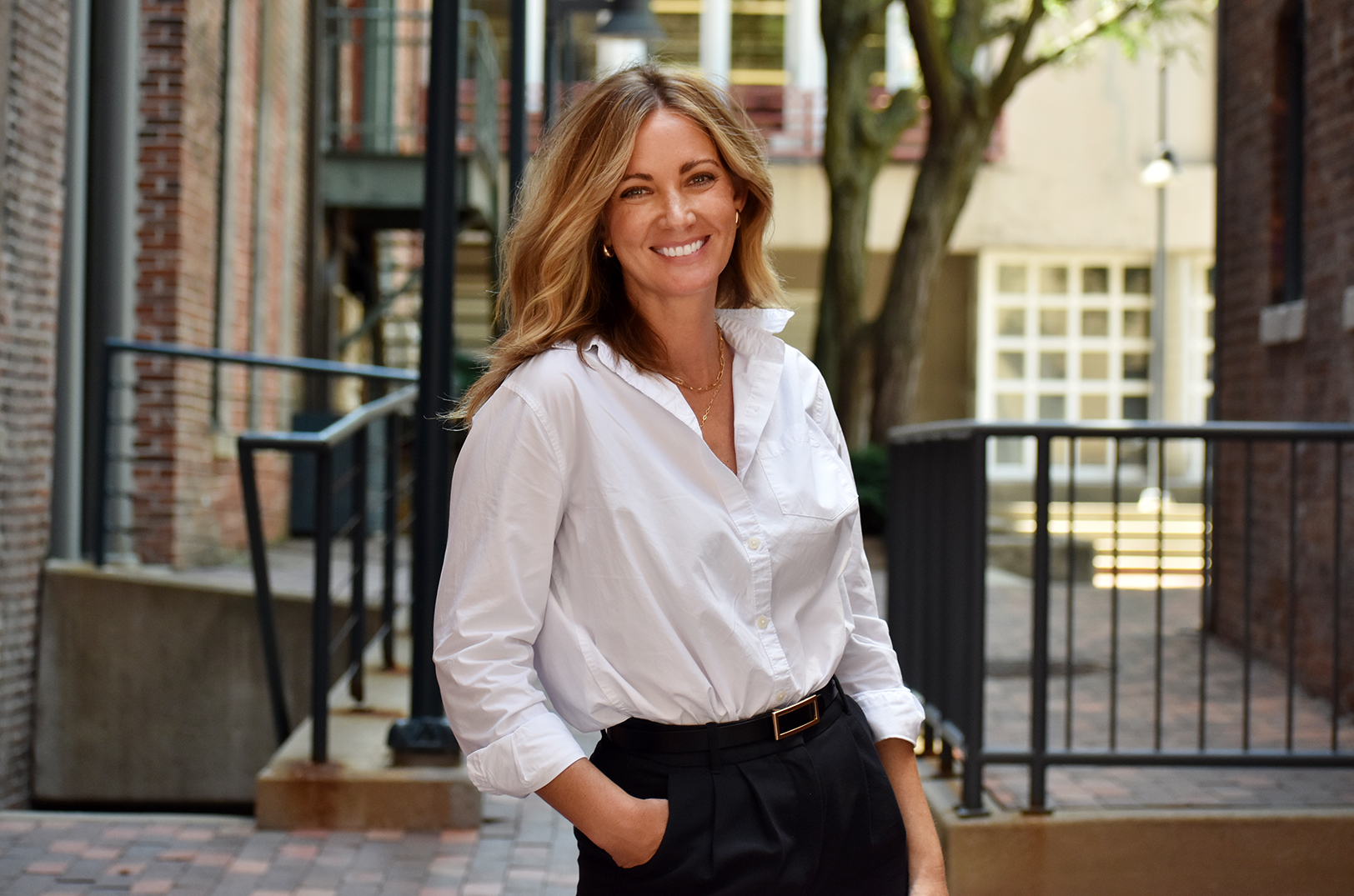Editor’s note: Startland News is a product of Startland — a 501c(3) nonprofit that fuels economic prosperity and cultural vibrancy in Kansas City through storytelling, skill-building, and connections to social capital. This piece was published independently by newsroom staff and without oversight or influence from Startland.
Great outcomes require putting in the work, Christina Hocker acknowledged, noting she’s fully aware that her new role at Startland comes with pressure to perform.
“Let’s talk about the possibilities,” she said with excitement — eagerly emphasizing the potential she sees in the community and Startland itself.
As the organization’s incoming director of education and skill-building, Hocker inherits a portfolio of educational ecosystem-building work that is deeply important to Kansas Citians of all ages, she said.
“I grew up in the heart of Kansas City. I’ve watched downtown go from [having nothing but] a Jones Store to becoming a thriving community,” Hocker said. “And Startland has played — and continues to play — a big part in that transformation.”
Such impact first drew Hocker to Startland in 2021 as teacher development and school partnerships manager after she participated in programming hosted by the organization. She later exited to pursue an opportunity to further hone her educator coaching and training skills within the Lee’s Summit R-7 School District.
Thoughts of returning to Startland to expand upon the work she previously led, however, weren’t far behind.
“The practical, smart thing for me to do was to stay within a district and take my retirement,” Hocker said with a laugh. “But there was this feeling gnawing at me all the time that this work is what is in my heart and my soul and is what drives me in education. This is where I belong.”
Hocker will lead well-known and impact-rich Startland programs that include the Social Change Internship, various innovation challenges (formerly branded as MECA Challenge), and a lineup of training opportunities for educators — including the newly launched Entrepreneurial Teacher Accelerator, an effort of collaboration between Startland and partners at the Ewing Marion Kauffman Foundation.
Changes to educational programming at Startland took hold earlier this year, beginning with a strategic shift in senior leadership.
Hocker also has a remarkable ability to grasp the larger structural changes necessary for innovation in education and beyond — while still being deeply engaged with the details of the work, said Haley Hurst, teacher development director.
“At Startland, we’re all about creating new paths to support educators and our community. She fits right in with that mission, leaning on her collaborative spirit to make change,” Hurst said. “She really gets the design thinking framework and has a knack for inspiring others to think outside the box and take risks. I can’t wait to see all the incredible things she’ll build.”
The next phase of such growth will see Hocker developing a broader skill-building program for Startland that serves not only students and teachers, but starters of all backgrounds — a shift Hocker knows many people familiar with Startland’s work might not understand at first, but that should feel natural.
“I understand that there is a lot of outside noise anytime someone steps into a leadership role at an organization known for doing something really great — for a really long time,” Hocker explained, noting the transition to Dr. DeAngela Burns-Wallace’s leadership at the Kauffman Foundation as a recent example of strategic shifts that bettered a long-standing community organization.
“We’ve seen this at Startland too,” she continued. “There have been a lot of questions about what Startland is doing, where Startland is going, and who Startland is serving.”
“Those questions were answered and new questions will be too. All I’m asking of our community is for the chance to prove this enhanced vision for our work is not only necessary for the future of Startland — but essential to the growth of Kansas City.”
Hocker’s upbringing as the child of an immigrant mother living in the heart of Kansas City’s Italian community could also enhance her impact at Startland, she said, giving her unique perspective on the experience of youth growing up in overlooked corners of the community and the critical need for opportunities that help them create prosperity.
“I grew up at 5th and Prospect. My mom married an American man, so I was born with bright red hair and freckles — growing up in this huge Italian community and going to a Catholic school. I was bullied, I was harassed,” she recalled.
“There were adults who didn’t see all of the things I was going through — or completely ignored all the signs that said, ‘This girl is struggling; She’s dealt with trauma.’ … When I started teaching, I made it my personal mission to make sure that no kid felt the way I felt. I had to be the adult that I needed and recognize [the needs of] every kid in my classroom.”
Such experience continues to inform the way Hocker advocates for and trains teachers to bring empathy into their classrooms, she said. And it will be front and center as she develops and leads expanded initiatives at Startland, she added, noting that many of the young people who have participated in Startland programming share a similar background.
“In the 19-years I was in the classroom, when I told kids my story, and when kids were able to tell me theirs, it helped us bridge that gap between adult and student,” she said. “And they appreciated the transparency.”
“A lot of kids have ideas … ways they want to solve problems — but they [often] have zero idea of how to get there or how to find what it is inside them that they are passionate about,” Hocker explained, noting that such a problem is what (loudly) called her back to Startland for what she hopes will be the final stop in her journey to transform education for the better.
“What people should be saying is, ‘I know Startland, I love Startland, they’re our partner – they’re our people,’” she added. “As we expand our skill-building programs, I am dedicated to ensuring that everyone — student to starter — has equitable access to the resources and mentorship needed to succeed as a starter, innovator, creator and in life.”







































